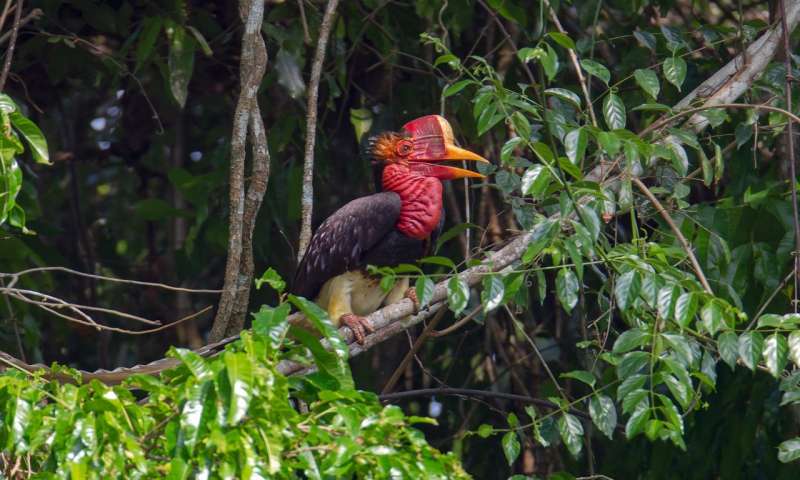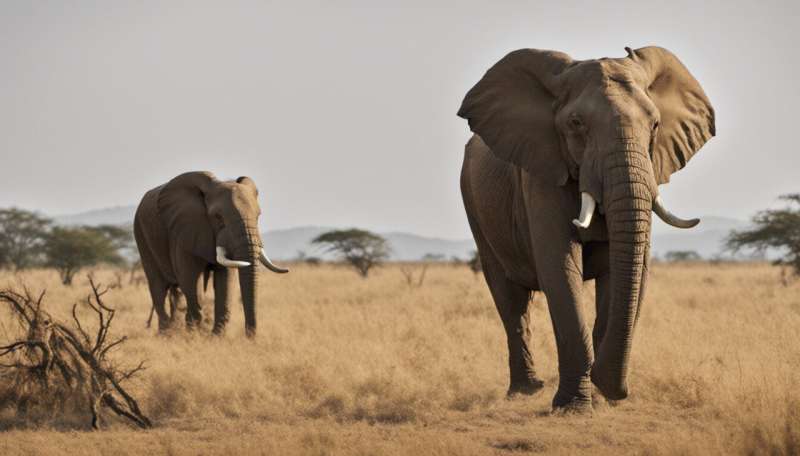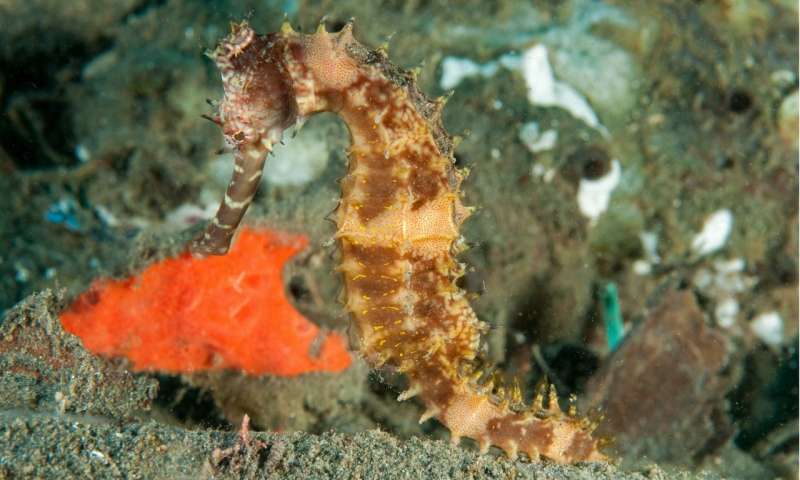Beyond ivory – championing the neglected victims of illegal wildlife trade

The many threats to our planet's biodiversity posed by illegal wildlife trade are as varied as they are daunting, and you could be forgiven for feeling deflated after reading the first installment of this two-part blog. But that was only half the story. Encouragingly, Fauna & Flora International (FFI) has met with considerable success in its efforts to combat illegal wildlife trade and secure the future of numerous threatened species worldwide – including Sumatran tigers, elephants, rhinos and other charismatic large mammals.
In this follow-up, however, we focus specifically on how FFI is safeguarding some of the less familiar species that might otherwise go under the radar and, crucially, how we are empowering those living closest to these species to take action against illegal activities.
Parrot patrol
On the Nicaraguan island of Ometepe, one of the last strongholds of the yellow-naped amazon, up to 40% of this parrot's nests are known to have been plundered in recent years to supply the illegal pet trade. Today, FFI is working with ornithologists on the island, who have set up a community group to help protect this endangered species. Survey work to assess the parrot population has led to the identification of four key roosting and nesting areas. Community-led patrols are being put in place to combat poaching at every known active nest site, working closely with local authorities. Meanwhile, community outreach is building local support in Ometepe for the protection of these birds.
Scales of justice
The sterling anti-poaching work of FFI's Tiger Protection & Conservation Units on the Indonesian island of Sumatra is not only safeguarding one of the world's most threatened big cats but also helping to disrupt the illegal trade in critically endangered Sunda pangolins and helmeted hornbills; their investigations have contributed to over 60 arrests and almost as many successful or ongoing prosecutions against wildlife criminals, including several notorious pangolin traders. In 2017, the recorded poaching threat fell by 90% as a direct result of this strategic law enforcement against key individuals.

On the other side of the globe, in St Vincent and the Grenadines, we are working with forestry staff and residents to develop a conservation strategy for the spectacular, diminutive and vanishingly rare Union Island gecko. This miniature Caribbean jewel is a prime target for unscrupulous collectors worldwide. However, the presence of community wardens, supported by FFI, and increased coordination with law enforcement agencies is now helping to protect it and 2017 saw the first arrest and conviction of a reptile poacher. Work is now under way to transform the gecko into a mascot for Union Island.
Citizen science
FFI's conservation programme in the Caucasus includes pioneering work to protect one of the world's most endangered fish. Georgia's Rioni river is home to six sturgeon species, all of which are being driven to the brink by illegal fishing and trade. FFI is improving enforcement strategies, building government capacity for law enforcement at borders, developing targeted responses to poaching activities, and engaging with traders and restaurants to put an end to the sale of wild sturgeon. Government staff and 'citizen inspectors' drawn from local villages are being trained to use SMART technology (a spatial monitoring and reporting tool) and deployed as anti-poaching teams. The citizen inspectors in particular have proved to be effective and highly motivated; some have independently initiated small-scale action in their own villages.
Tree musketeers
Rosewood is one of the world's most trafficked wild products. This tropical timber tree generates more revenue than elephant ivory, rhino horn and tiger parts combined. Honduran rosewood, which is highly coveted for the production of musical instruments, has suffered a precipitous decline following a surge in international demand. Through the Global Trees Campaign, FFI is supporting its partner in Belize, Ya'axché Conservation Trust, to protect high-priority populations of this valuable tree. Ya'axché's ranger teams are working jointly with government rangers to patrol key areas of tropical rainforest in southern Belize to deter and investigate illegal activity, helping to significantly reduce the threat from trade-driven illegal logging.

Rays of hope
We are supporting national efforts in Myanmar to conserve sharks and rays by strengthening legal protection, improving compliance through awareness raising and enforcement, demonstrating solutions to reduce shark by-catch, and increasing protection of important habitats for threatened shark and ray species.
In Cambodia's Koh Rong Archipelago we have helped establish the country's first Marine Protected Area, which is already contributing to a reduction in illegal fishing. In this hotspot for seahorse diversity we are also researching local seahorse trade and developing strategic actions to protect them. The government has now asked FFI for support in replicating this model in other priority areas.
In the Indonesian province of Aceh in northern Sumatra, FFI has been helping local fishing communities to manage their waters, resulting in dramatic reductions in the use of fishing with cyanide at key sites. Looking ahead, we will be working with these groups to identify and safeguard important spawning grounds for fish regularly targeted to supply the live food trade.
Springboard for action
Tackling illegal wildlife trade is high on FFI's agenda. The October 2018 conference in London provides an ideal platform for us to highlight the breadth of species affected, as well as to share lessons from our decades of experience in protecting these species – both terrestrial and marine – from what is one of the most serious global threats to their survival.
Provided by Fauna & Flora International



















